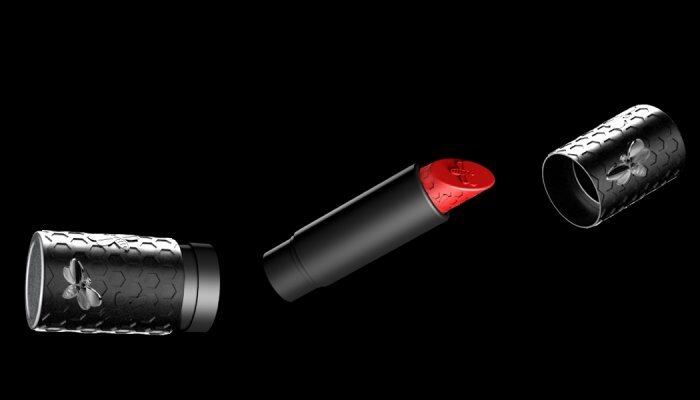Eco-sustainable packaging business Inca has been manufacturing aluminium and primary plastic packaging for perfumes, cosmetics and personal care products since 1951. There isn’t anything the team doesn’t know about using aluminium to create luxurious packaging, but in recent years, the business has also been able to capitalise on the increased focus on sustainability, as aluminium is a 100%-recyclable material to work with.
Inca, which is based in Porto Valtravaglia, just north of Milan, uses its expertise to create all shapes, sizes and quantities of aluminium-based packaging and offers a "turnkey" service to its clients – from the design to the final production of the part.
“We master all the stages,” explains CEO Stefano Parodi. “We have a wide range of stamping machines, allowing us to shape aluminium into simple or complex forms in small or large series. We are fully equipped with polishing and brushing equipment suited for working on cylindrical or shaped parts.”
Eco-luxe packaging for Collistar and Diptyque
One of the company’s proudest recent collaborations was revamping the packaging of Italian beauty brand Collistar's Puro lipstick. The elegant and eco-friendly new pack has a polypropylene base and cap with a refillable aluminium mechanism.
This lipstick was so popular that the range has been extended with two additional items – another lipstick and a lid for cream containers. For the second lipstick, the design featured a 100%-recyclable aluminium cap and base with a plastic mechanism.
The company also offers clients a range of customisation possibilities, from hot foil stamping to pad printing, screen printing and engraving, which allows beauty companies to create packaging that reflects their brand.
“Our two anodising lines allow us great flexibility in terms of production and finishing,” says Parodi. “Screen printing, pad printing or hot stamping are part of our decoration techniques but we also master sublimation technology to provide an unlimited number of colours and shapes.”
For plastic parts, Inca has a range of injection moulding machines to produce all types of components. “We also have a wide range of machines to assemble various combinations of materials, whether they are aluminium, plastic or glass,” says Parodi. “A big advantage today, as you know, is that aluminium is a 100% recyclable material that can be reused indefinitely.”
Inca has also worked with the Parisian fragrance brand Diptyque to create packaging for a candle. The elegant lid design displays a dark background with four colour gradients made using vegetable dyes.
The company’s flexible manufacturing process can be an especially good fit for niche perfumers that want high-quality packaging and high levels of customisation, even for a small series.
Transforming aluminium into sustainable works of art
Inca says its manufacturing and transformation process of aluminium is fairly simple. It starts by extracting bauxite from the mine, which contains 15 to 25% aluminium, and then refines it to produce aluminium oxide (also known as alumina). Then finally, using electrolysis this is smelted into aluminium.
The company claims that around 1kg of aluminium is produced from 5kg of bauxite. It also says that it’s possible to reintroduce used aluminium parts back into the manufacturing process with no loss of quality to achieve 95% energy savings and reduce CO2 emissions and mining activity, as well as waste disposal costs.
Inca's teams are currently focusing on modifying and improving production processes to reduce their environmental impact.
The company currently uses recycled plastics in various percentages, depending on the customer's wishes for the project. And for its "mono-material" designs, Inca has a series of standard aluminium lids with no plastic insert that can be used on glass jars for "skincare" applications.
For the future, the teams are also working on designing products using recycled aluminium (RE-AL) and recycled plastics, as well as further developing its mono-material packaging and refillable packaging options to make them more sustainable.
Right now, Inca says it is currently working on overcoming two small hurdles to be able to use RE-AL for more packaging solutions. One is: to ensure it “finds quality recycled aluminium on the market”, and the other is to “be able to maintain the same level of brightness as with pure aluminium.”


